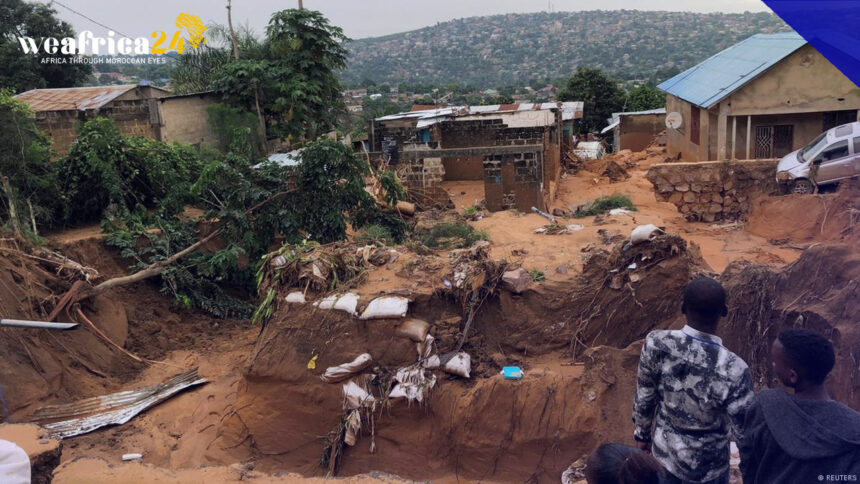In the east of the Democratic Republic of Congo (DRC), nearly ten days after the floods in the territory of Kalehe, the toll is not yet final, 438 inhabitants have died according to the authorities. But hundreds, if not thousands, of people, are still missing. These landslides, which occurred on May 4th, 2023, are not the first in the region.
Losses of human life and destruction of houses or fields occur almost every rainy season in this region of the Democratic Republic of Congo (DRC). Already, in 2014, major landslides had caused the disappearance of several hundred people, in Rambira, a village near the area that is affected today.
It is therefore a region at risk, linked to the local geography. The disaster area is close to what is known as the Kalehe Highlands, mountains or hills below which are villages on the shores of Lake Kivu. These mountains and hills were once forests.
Today, there are hardly any trees left, as explained by Chance Muhindo Kafunga, coordinator of the NGO. For him, this natural disaster is the consequence of massive deforestation: “The highlands of Kalehe are deforested without thinking about reforestation. We produced more than 270,000 seedlings which we distributed free to the population. But when we go to the field, we observe that there has been reforestation on the coastal part but in the high plateau part, nothing has been done. For what? Because they only preferred Calliandra and Leucaena. These are seedlings that are considered fodder for livestock instead of planting trees and shrubs.”
A region mainly populated by herders and farmers
This region is essentially populated by herders and farmers. Population whose number is only increasing. Especially since the territory of Kalehe is also often a land of welcome for the displaced. In recent months, residents of North Kivu fleeing fighting between the army and the M23 rebels have taken refuge there. In 1994, after the genocide in Rwanda, many refugees came to settle there.







